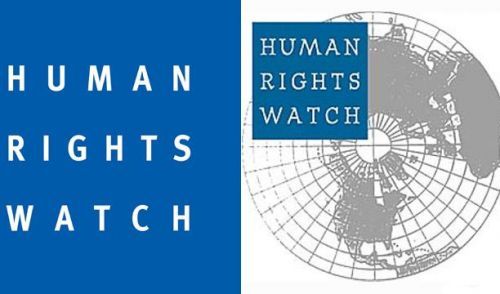 Kazakhstan's senate is considering a draft law that would impose serious restrictions on nongovernmental organizations, Human Rights Watch said today.
Kazakhstan's senate is considering a draft law that would impose serious restrictions on nongovernmental organizations, Human Rights Watch said today.
The proposed restrictions are incompatible with respect for freedom of association and legitimate work of independent organizations, including human rights groups.
The bill passed its first reading in the senate on October 8, 2015. It must pass a second reading before it is sent to the president for signature. About 70 groups in Kazakhstan have raised concerns about the bill, along with several United Nations and other international bodies.
“If this draft law is adopted it could have highly negative repercussions for nongovernmental organizations' work," said Mihra Rittmann, Central Asia researcher at Human Rights Watch. “Legislators should reject the bill and ensure that independent groups in Kazakhstan can carry out their activities without undue government interference."
The draft regulations would introduce government control over nongovernmental organizations' sources of funding. The bill could potentially limit the issues on which groups can work as well.
The bill would require all government and nongovernmental funding, both local and foreign, for nongovernmental groups to be distributed through a single “operator" in Kazakhstan, which will have discretion over the dispersal of the funds. The government would appoint a “noncommercial corporation" to fulfill the functions of the “operator."
The bill also appears to limit the issues on which groups that receive funding through the “operator" can work, whether funding is from government or other sources. Article 5 sets out government-approved issues that are not consistent with other laws regulating the activities of nongovernmental organizations in Kazakhstan, raising concern that the vague wording could lead to further restrictions on the issues such organizations can address. The bill also authorizes the “operator" to hire experts to monitor and assess the work done by groups that receive grants distributed via the “operator."
The bill would also require organizations to submit information about their founders, their activities, and their expenses that would be retained in a government database. Failure to provide information on time, or false or incomplete information could lead to fines or suspension of the organization's activities for up to three months.
While governments may reasonably require nongovernmental organizations to submit information about their activities and funding, it may not do so punitively, or use reporting obligations as a pretext for harassment, which the vague wording of the draft law gives authorities ample room to do, Human Rights Watch said.
“This draft law is punitive, excessively controlling, and crosses well over the line of what is reasonable government oversight for work and funding of independent groups," Rittmann said. “It is out of line with Kazakhstan's constitutional guarantee to the right to freedom of association, and with Kazakhstan's commitments under international law."
Under the right to freedom of association, independent groups can raise and use funds to support their work. States can control this right, but any interference must be “prescribed by law, ... necessary in a democratic society in the interests of national security or public safety, public order, the protection of public health or morals or the protection of the rights and freedoms of others."
Discussions on the new draft law “On Introducing Changes and Amendments to Several Legal Acts of the Republic of Kazakhstan on the Question of the Activities of Nongovernmental Organizations" began in 2014.
In spring 2015, the Culture and Sport Ministry formed a working group to review the draft bill, which included representatives of independent human rights groups and other experts. Representatives of rights organizations also took part in the working group in parliament.
However, the version of the bill that was adopted in back-to-back first and second readings in Kazakhstan's lower house of parliament, the Majilis, on September 23 ignored most of the recommendations proposed by representatives of independent groups that aimed at bringing the draft in line with Kazakhstan's constitution and international commitments, Aina Shormanbaeva, president of the International Legal Initiative and a member of the working group, told Human Rights Watch.
In a letter dated September 22, nongovernmental groups across Kazakhstan urged President Nursultan Nazarbaev to send the bill to the Constitutional Council for review, and to veto the bill if parliament adopted it. About 70 groups have now signed the appeal.
Source: akipress.com
 В Атырау -10
В Атырау -10